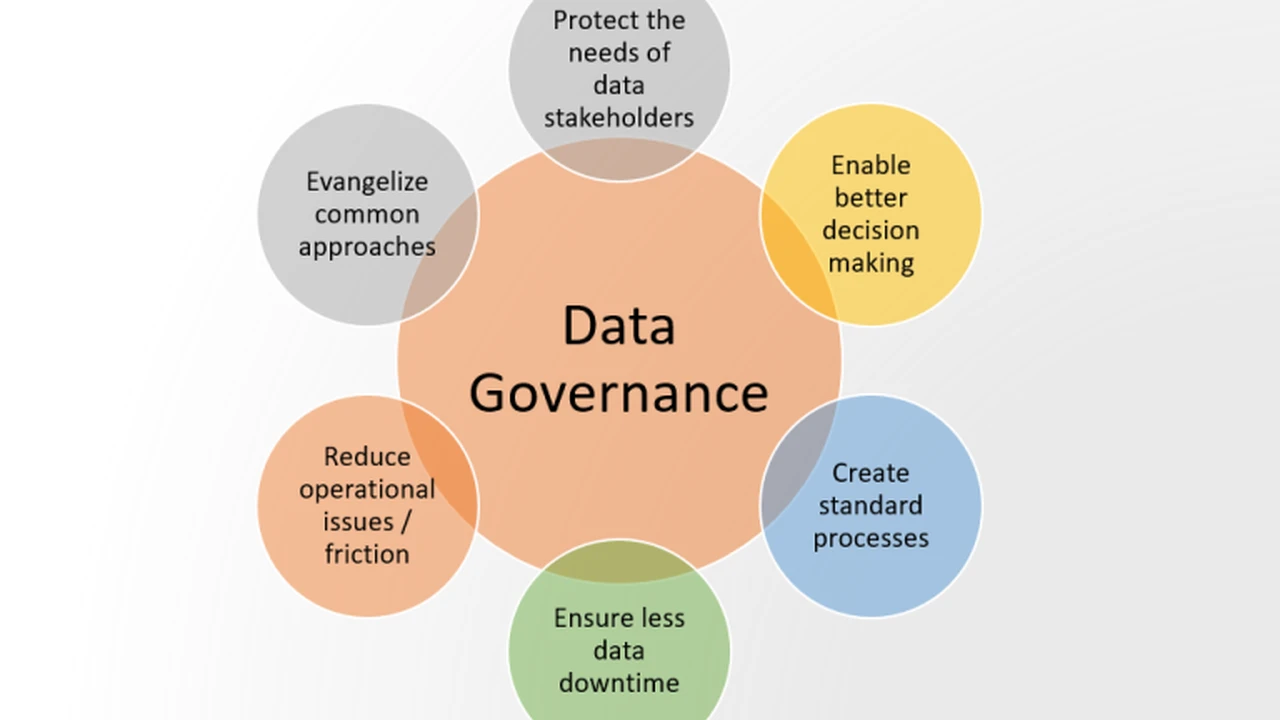Data Security on Online Learning Platforms What to Know
Understand the importance of data security on online learning platforms and how to protect your personal information.

Understand the importance of data security on online learning platforms and how to protect your personal information.
Data Security on Online Learning Platforms What to Know
In today's digital age, online learning platforms have become indispensable tools for education, offering unparalleled flexibility and access to knowledge. From K-12 students to university scholars and working professionals, millions worldwide rely on these platforms for their educational journeys. However, with the convenience of online learning comes a critical concern: data security. As you navigate your academic path, understanding how your personal information is handled and protected on these platforms is paramount. This comprehensive guide will delve into the intricacies of data security in online learning, offering insights, comparisons, and practical advice to safeguard your digital footprint.
Understanding Online Learning Platform Data Collection and Usage
When you sign up for an online learning platform, you're typically asked to provide a range of personal information. This can include your name, email address, date of birth, academic history, payment details, and even biometric data in some cases for identity verification. Beyond this initial input, platforms continuously collect data on your learning activities: courses enrolled, progress, grades, discussion forum contributions, quiz answers, and even how long you spend on certain pages. This data is used for various purposes, from personalizing your learning experience and tracking academic progress to improving platform functionality and, in some instances, for marketing and research.
For example, a platform might use your course completion data to recommend similar courses or use your performance on quizzes to identify areas where you might need additional support. While many of these uses are beneficial, it's crucial to be aware of the extent of data collection and how it aligns with your privacy expectations. Different platforms have varying policies, and understanding these policies is your first line of defense.
Key Data Security Risks in Online Education Platforms
Despite robust security measures, online learning platforms are not immune to cyber threats. Several risks can compromise your personal and academic data:
- Data Breaches: This is perhaps the most significant risk. Hackers can exploit vulnerabilities in a platform's system to gain unauthorized access to user databases, potentially exposing names, email addresses, passwords, and even financial information.
- Phishing Attacks: Cybercriminals often impersonate legitimate platforms or institutions to trick users into revealing their login credentials or other sensitive information.
- Malware and Ransomware: Malicious software can be introduced through compromised links or downloads, potentially infecting your device and stealing data or holding it for ransom.
- Insider Threats: While less common, unauthorized access or misuse of data by employees or contractors of the platform can also pose a risk.
- Weak Password Practices: Users themselves contribute to security risks by using weak, easily guessable passwords or reusing passwords across multiple accounts.
- Third-Party Integrations: Many platforms integrate with third-party tools (e.g., video conferencing, plagiarism checkers). If these third-party services have security flaws, they can become a backdoor for attackers.
The consequences of these risks can range from identity theft and financial fraud to academic dishonesty accusations if your account is compromised. Therefore, proactive measures are essential.
Regulatory Frameworks and Data Protection Laws for Online Learning
Several international and national regulations govern data privacy and security, impacting how online learning platforms operate. Understanding these can help you assess a platform's commitment to data protection:
- GDPR (General Data Protection Regulation): This EU regulation is one of the strictest data privacy laws globally. It mandates how personal data of EU citizens must be collected, processed, and stored, granting individuals significant rights over their data. Many platforms serving a global audience adhere to GDPR standards.
- FERPA (Family Educational Rights and Privacy Act): In the United States, FERPA protects the privacy of student education records. It applies to all schools that receive funds under an applicable program of the U.S. Department of Education.
- CCPA (California Consumer Privacy Act): Similar to GDPR, CCPA grants California consumers specific rights regarding their personal information, including the right to know what data is collected and to request its deletion.
- PIPEDA (Personal Information Protection and Electronic Documents Act): Canada's federal privacy law for private-sector organizations, which sets out ground rules for how businesses must handle personal information in the course of commercial activities.
- Local Regulations in Southeast Asia: Countries like Singapore (PDPA), Malaysia (PDPA), and the Philippines (DPA) have their own data protection acts that online platforms operating in these regions must comply with.
When choosing a platform, look for explicit statements about their compliance with relevant data protection laws. This indicates a commitment to safeguarding user data.
Best Practices for Online Learning Platforms to Ensure Data Security
Reputable online learning platforms employ a variety of security measures to protect your data. Here's what to look for:
- Encryption: Data should be encrypted both in transit (when it's being sent over the internet) and at rest (when it's stored on servers). This makes it unreadable to unauthorized parties.
- Multi-Factor Authentication (MFA): Offering MFA (e.g., a code sent to your phone in addition to your password) significantly enhances account security.
- Regular Security Audits and Penetration Testing: Platforms should regularly audit their systems for vulnerabilities and conduct penetration tests to simulate cyberattacks and identify weaknesses.
- Access Controls: Strict access controls ensure that only authorized personnel can access sensitive user data.
- Data Minimization: Platforms should only collect the data absolutely necessary for their stated purposes.
- Incident Response Plan: A clear plan for how the platform will respond to and mitigate the impact of a data breach is crucial.
- Privacy by Design: Integrating privacy considerations into the design and architecture of the platform from the outset.
- Transparent Privacy Policies: Easily accessible and understandable privacy policies that clearly outline data collection, usage, and sharing practices.
Your Role in Protecting Your Data Online Learning Security Tips
While platforms have a responsibility to protect your data, you also play a crucial role. Here's how you can be proactive:
- Strong, Unique Passwords: Use long, complex passwords that combine letters, numbers, and symbols. Never reuse passwords across different accounts. Consider using a password manager.
- Enable Multi-Factor Authentication (MFA): Always enable MFA if the platform offers it. It adds an extra layer of security.
- Be Wary of Phishing: Be suspicious of unsolicited emails or messages asking for your login credentials or personal information. Always verify the sender and the legitimacy of links before clicking.
- Keep Software Updated: Ensure your operating system, web browser, and antivirus software are always up to date. Updates often include critical security patches.
- Use Secure Networks: Avoid accessing sensitive information on public Wi-Fi networks. If you must, use a Virtual Private Network (VPN).
- Review Privacy Settings: Regularly check and adjust the privacy settings on your online learning platforms to control what information is shared.
- Read Privacy Policies: Take the time to read and understand the privacy policies of the platforms you use.
- Be Mindful of What You Share: Think twice before sharing overly personal information in public forums or discussion boards.
- Log Out: Always log out of your accounts, especially on shared computers.
Comparing Data Security Features Across Popular Online Learning Platforms
Let's look at how some popular online learning platforms approach data security. Keep in mind that security features are constantly evolving, so always check the latest policies directly on their websites.
Coursera Data Security and Privacy
Coursera is a leading online learning platform offering courses and degrees from top universities and companies. They emphasize a strong commitment to data privacy and security. Coursera typically employs:
- Encryption: All data transmitted to and from Coursera is encrypted using industry-standard TLS (Transport Layer Security). Data at rest is also encrypted.
- MFA: Coursera supports multi-factor authentication for enhanced account security.
- Compliance: They generally adhere to GDPR and CCPA, providing users with rights to access, correct, and delete their personal data.
- Third-Party Audits: Coursera undergoes regular security audits and penetration testing.
- Privacy Policy: Their privacy policy is comprehensive, detailing data collection, usage, and sharing with partners (e.g., universities).
Usage Scenario: If you're pursuing a Specialization or a MasterTrack certificate, you'll be sharing academic records and potentially payment information. Coursera's robust security framework aims to protect this sensitive data throughout your learning journey.
edX Data Security and Privacy
edX, another prominent platform founded by Harvard and MIT, also places a high priority on data security, especially given its academic affiliations. Their approach includes:
- Data Encryption: Similar to Coursera, edX uses encryption for data in transit and at rest.
- Strict Access Controls: Access to sensitive data is tightly controlled and monitored.
- Privacy by Design: edX aims to incorporate privacy considerations from the initial stages of platform development.
- GDPR and FERPA Compliance: Given its global reach and US university partners, edX is typically compliant with GDPR and FERPA, ensuring student data protection.
- Regular Security Updates: The platform is regularly updated to address new security vulnerabilities.
Usage Scenario: When enrolling in an online degree program through edX, you're entrusting them with significant personal and academic history. Their adherence to regulations like FERPA is particularly reassuring for US-based students.
Udemy Data Security and Privacy
Udemy, known for its vast library of user-generated courses, has a slightly different model. While it's not primarily focused on accredited degrees, data security for its millions of users is still critical. Udemy's security measures typically include:
- Secure Payment Processing: They use secure, encrypted payment gateways for transactions.
- Data Encryption: Data in transit is encrypted.
- User Account Security: Encourages strong passwords and offers features like password reset.
- Privacy Policy: Details how user data (course progress, purchase history, interactions) is collected and used, often for personalization and marketing.
Usage Scenario: If you're taking a short course on web development or photography, you're primarily concerned with your payment information and learning progress. While not as heavily regulated as degree-granting platforms, Udemy still employs standard web security practices.
Canvas LMS Data Security and Privacy (Used by many universities)
Canvas is a widely used Learning Management System (LMS) by universities and K-12 institutions globally. Its security posture is critical because it handles highly sensitive student data on behalf of educational institutions. Canvas (by Instructure) typically offers:
- Robust Cloud Security: Hosted on secure cloud infrastructure (e.g., AWS) with inherent security features.
- Data Encryption: Comprehensive encryption for data at rest and in transit.
- Compliance Certifications: Often holds certifications like ISO 27001, SOC 2 Type II, and adheres to GDPR, FERPA, and other relevant educational privacy laws.
- Regular Security Testing: Undergoes frequent security audits and penetration testing.
- Granular Access Controls: Allows institutions to set very specific permissions for faculty, students, and administrators.
Usage Scenario: If your university uses Canvas, your entire academic record, communications with professors, and submitted assignments are stored there. The platform's high level of compliance and security certifications are vital for protecting this extensive data.
Moodle Data Security and Privacy (Open-source LMS)
Moodle is an open-source LMS, meaning its core code is publicly available. While this offers transparency, the security of a Moodle instance largely depends on how it's implemented and maintained by the individual institution or hosting provider. Key aspects:
- Community Audited Code: The open-source nature means the code is reviewed by a large community, which can help identify vulnerabilities.
- Hosting Dependent Security: The institution or hosting provider is responsible for server security, backups, and applying security patches.
- Customizable Security Settings: Moodle offers various security settings that administrators can configure, including password policies, user authentication methods, and data retention.
- Plugin Vulnerabilities: As Moodle supports numerous plugins, the security of these third-party additions can vary.
Usage Scenario: If your school uses Moodle, it's important to understand their specific security policies and practices. While Moodle itself is secure, the implementation and maintenance by your institution are key factors in its overall data protection.
Emerging Technologies and Their Impact on Online Learning Security
The landscape of online learning and data security is constantly evolving with new technologies:
- Artificial Intelligence (AI) and Machine Learning (ML): AI can enhance security by detecting anomalies and potential threats in real-time, identifying phishing attempts, and even predicting potential vulnerabilities. However, AI also introduces new privacy concerns regarding how student data is used for algorithmic training and potential biases.
- Blockchain Technology: Blockchain offers decentralized, immutable record-keeping. It could be used to secure academic credentials, verify identities, and protect intellectual property in a highly transparent and tamper-proof manner. Imagine your degree being a secure, verifiable entry on a blockchain!
- Biometric Authentication: While offering strong security, using biometrics (fingerprints, facial recognition) for login raises significant privacy questions about how this highly sensitive data is stored and protected.
- Zero-Trust Architecture: This security model assumes no user or device can be trusted by default, regardless of whether they are inside or outside the network. Every access request is verified, significantly reducing the risk of unauthorized access.
As these technologies become more integrated into online learning, platforms will need to balance innovation with robust privacy and security safeguards.
What to Do if Your Data is Compromised on an Online Learning Platform
Despite all precautions, data breaches can happen. If you suspect your data has been compromised on an online learning platform, here's what you should do:
- Change Your Password Immediately: Create a strong, unique password for that platform and any other accounts where you might have used the same password.
- Enable MFA: If you haven't already, enable multi-factor authentication on the compromised platform and other critical accounts.
- Monitor Your Accounts: Keep a close eye on your email for suspicious activity, your bank statements for unauthorized transactions, and your credit report for signs of identity theft.
- Notify the Platform: Report the suspected breach to the online learning platform's support team or security department.
- Inform Your Institution: If the platform is used by your school or university, inform their IT or academic support department.
- Consider a Credit Freeze: If financial information was potentially exposed, consider placing a freeze on your credit with major credit bureaus.
- Be Wary of Follow-Up Scams: Cybercriminals often follow up a breach with phishing attempts, so remain vigilant.
Being prepared for such an event can significantly mitigate the potential damage.
The Future of Data Security in Online Learning Platforms
The future of data security in online learning is likely to be characterized by increasing sophistication in both threats and defenses. We can expect:
- Enhanced AI-driven Security: More advanced AI and ML algorithms will be deployed to predict and prevent cyberattacks, offering real-time threat detection and response.
- Greater Emphasis on User Education: Platforms will likely invest more in educating users about cybersecurity best practices, recognizing that human error is often a weak link.
- Decentralized Identity Management: Blockchain-based identity solutions could give users more control over their digital identities and how their data is shared.
- Stricter Regulatory Compliance: As data privacy becomes a global priority, new and more stringent regulations will emerge, forcing platforms to adopt even higher security standards.
- Focus on Supply Chain Security: With the increasing reliance on third-party tools and services, platforms will need to ensure the security of their entire supply chain to prevent vulnerabilities.
Ultimately, the goal is to create a secure and trustworthy environment where learners can focus on their education without constantly worrying about the safety of their personal information. By staying informed, practicing good cyber hygiene, and choosing platforms that prioritize security, you can confidently navigate the exciting world of online learning.
:max_bytes(150000):strip_icc()/277019-baked-pork-chops-with-cream-of-mushroom-soup-DDMFS-beauty-4x3-BG-7505-5762b731cf30447d9cbbbbbf387beafa.jpg)






